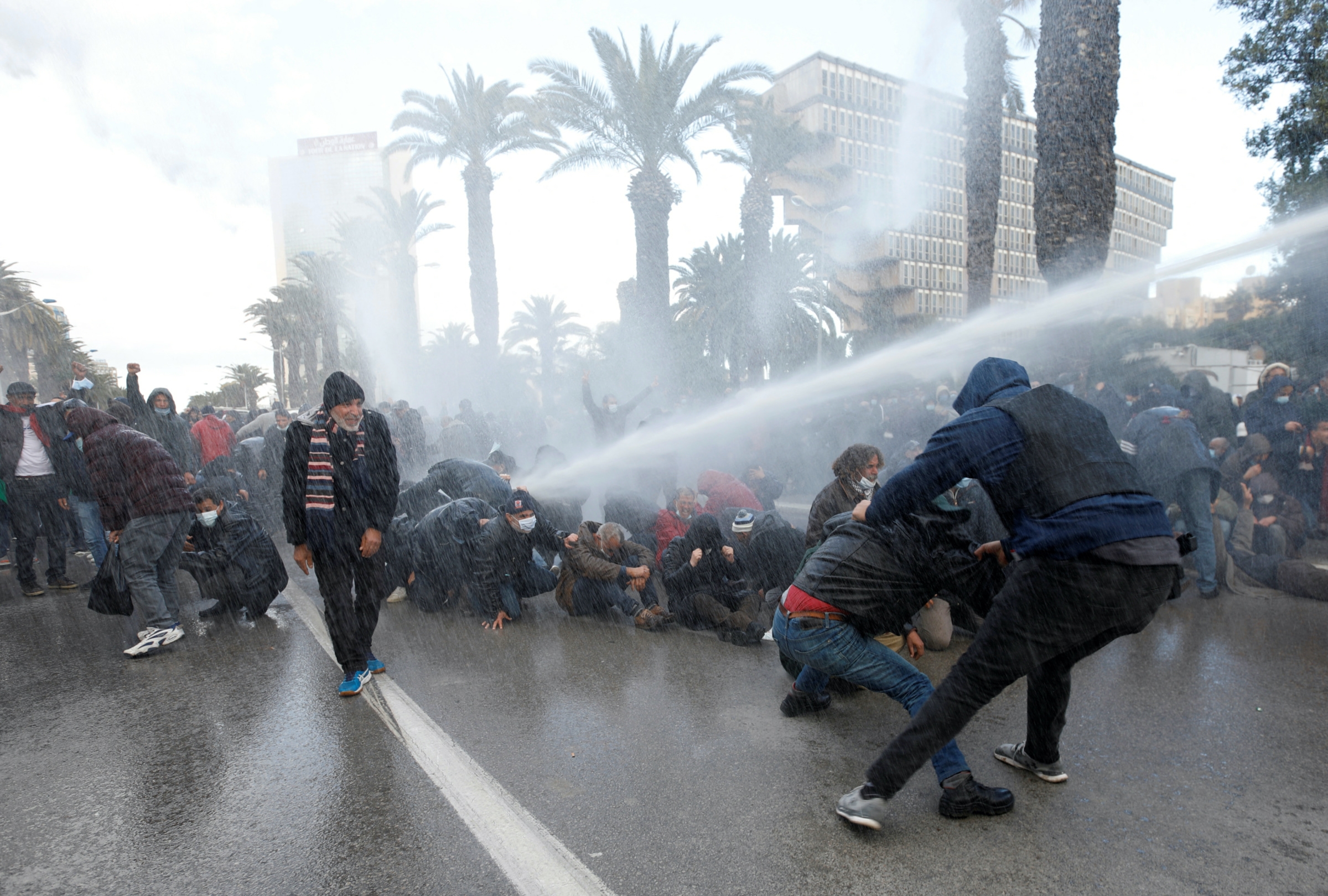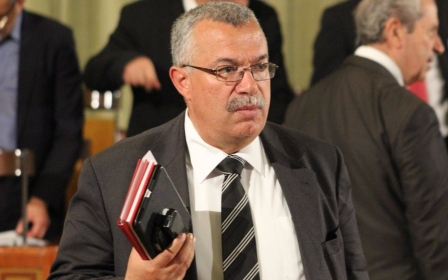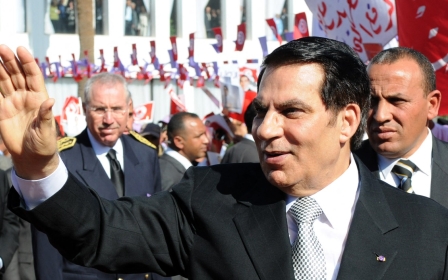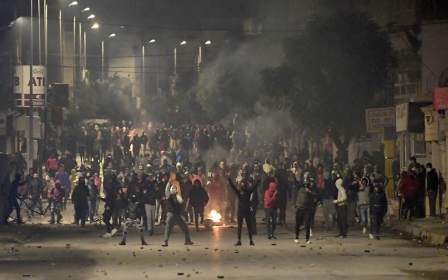Tunisia: Police crack down on protests against president

Tunisian police used teargas and water cannons against hundreds of demonstrators who defied a ban on gatherings to protest against President Kais Saied's power grab last July, on the 11th anniversary of the revolution in Tunisia.
Earlier this week the government announced a series of measures, including a night-time curfew and a ban on all indoor and outdoor gatherings, purportedly to limit a rise in Covid-19 cases.
"Preventing free Tunisians from protesting on the revolution anniversary is shameful... and is an attack on freedoms and represents a big decline under the coup authorities," said Imed Khemiri, an Ennahda member of the parliament that Saied suspended in July 2021.
Dozens of police cars were deployed around Avenue Habib Bourguiba and police used water cannons outside the interior ministry building to prevent the protesters from reaching the area, which has been the focal point of demonstrations since the 2011 revolution.
New MEE newsletter: Jerusalem Dispatch
Sign up to get the latest insights and analysis on Israel-Palestine, alongside Turkey Unpacked and other MEE newsletters
Ghaya Ben Mbarek, a journalist from the independent Tunisian news organisation Meshkal, reported on Twitter that officers were "pushing" and "dragging" people off the street. Some 300 protesters gathered on Avenue Mohamed V, with some breaking through a police cordon before being forced back by officers with batons. Several people were arrested, according to AFP reporters.
"Today Saied's only response to opponents is with force and the security forces... it is so sad to see Tunisia like a barracks on the date of our revolution," Chayma Issa, an opposition activist, told Reuters.
The 10pm-5am curfew is set to remain in place for at least two weeks. Ennahda, which had the largest number of seats in the suspended parliament and was a central player in previous governments, said the restriction measures were politically motivated and a way to prevent protests.
Several Tunisian parties also rallied to protest against Saied's power move last July, when he suspended parliament and gave himself wide prosecutorial powers, plunging the country into political turmoil. Saied has cited skyrocketing unemployment, rampant corruption and the coronavirus pandemic as reasons behind his move, which Ennahda and other political forces have labelled a coup.
Saied extended the suspension of parliament last month, announcing that a referendum on constitutional reform would be held in July 2022, followed by parliamentary elections in December. The move has been rejected by the majority of political forces, including the country's largest workers' union, the UGTT.
In December, the ex-justice minister and Ennahda deputy leader Noureddine Bhiri was arrested by plainclothes police officers and later accused of possible "terrorism" offences.
Bhiri, 63, has been on hunger strike since his arrest and is currently in custody at a hospital, in circumstances described by Human Rights Watch as "abduction-like detention".
Middle East Eye delivers independent and unrivalled coverage and analysis of the Middle East, North Africa and beyond. To learn more about republishing this content and the associated fees, please fill out this form. More about MEE can be found here.




